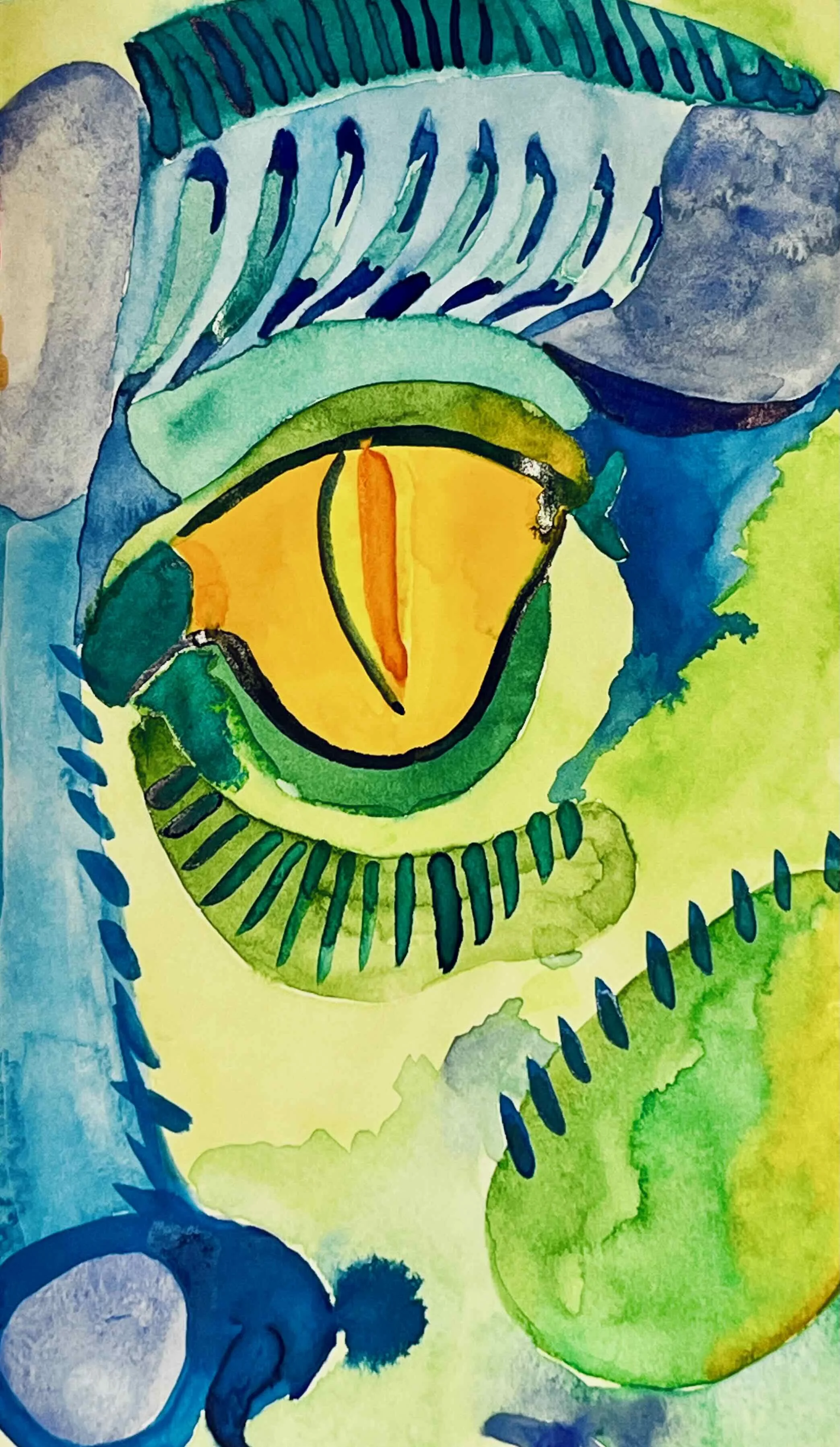The Difference Between an Amateur and an Artist
The amateur worries about being “good enough.” The artist simply follows curiosity. The artist creates to discover.
I’m still hanging on to this thought from yesterday. It keeps circling in my mind:
That amateurs are the ones who create with their focus turned outward. always worrying about what others will think of their work, whether it will be accepted, whether it will impress.
Artists, on the other hand, surrender to something entirely different: the unbearable inner drive to create.
They create because they have to.
It doesn’t matter whether the work will be seen or not.
It doesn’t matter whether those who studied art will ever recognize it or not.
The artist keeps going anyway.
The artist creates in spite of everything.
What Really Sets Them Apart
For a long time, I believed the difference between an amateur and an artist was skill level. That one day, when I got “better,” I would finally earn the right to call myself an artist.
But that was never true.
The real difference lies somewhere else entirely.
It’s in the uncompromising commitment,… the intrinsic, almost irrational motivation to create.
And realizing this has shifted something deep inside my ego.
Because suddenly, it no longer mattered whether people think my music is good, or whether my voice sounds “professional.” What matters is something else entirely:
Am I able, in a world where everything else always seems so urgent, to follow that inner artistic pull?
When I don’t, something inside me begins to rot.
The unexpressed piles up, restless and angry.
It screams for release! Through singing, painting, writing, anything that brings it to life.
That is what makes me feel alive.
When I deny it for too long,… for the sake of functioning, fitting in, keeping up with life, the anger sets in. And eventually, the depression.
The Freedom of the Artist
The amateur worries if their work is polished enough, refined enough, impressive enough.
The artist is in dialogue with themselves, with their art, with something larger moving through them.
That makes them freer.
The artist trusts what is happening in the moment: even if they don’t understand it. They don’t need to explain it. In fact, they can’t explain it, because often they themselves don’t know what is happening as they create.
This is where amateurs get it wrong…
… they assume artists always know what they’re doing. But most of the time, the creation is born from curiosity, from hunger, from a desire to discover.
The intention is rarely clear at the beginning.
It’s usually only the audience, later, who assigns meaning to the work.
My Practice
And maybe this is my practice right now.
To write these blog posts out of my diary entries.
To paint watercolors without “knowing how.”
To let myself create not from perfection but from the raw drive to make.
To stop overthinking and simply do the thing.
Because this too is the line between amateur and artist:
Amateurs think and rethink their work before it even exists.
Artists make.
The Risk of Being Seen
To create something true, we have to approach it recklessly. We have to be willing to appear rough, unpolished, vulnerable.
And yes, a big part of me wants to resist this with everything I have. Because it feels too dangerous to be seen that nakedly.
But the more I lean into it, the more I understand:
This is exactly what makes me an artist.
The very things I fear most…
… being too vulnerable, oversharing, being seen as unrefined…
these are not flaws. They are my artist DNA.
The paradox is this:
What I most want to hide, what I judge about myself, is exactly what will make my music, my art, uniquely mine.
And What About You?
So maybe the question isn’t whether you are “talented enough” or “good enough” to call yourself an artist. Maybe the real question is:
Are you willing to listen to that inner pull to create,…
even when it doesn’t feel polished
even when you don’t know where it’s going
even when no one else may ever see it?
Because that restless, unpolished energy inside you is your own artist DNA.
It doesn’t need permission. It doesn’t need recognition. It doesn’t need polish.
It just needs you to stop overthinking and let it out.
Write the messy short story.
Play the imperfect notes.
Paint with colors that don’t make sense.
Because the artist isn’t the one who masters perfection.
The artist is the one who dares to make.
